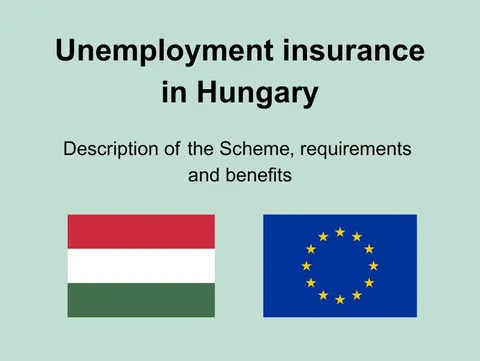EU
Hungary
Unemployment
Insurance
Unemployment Insurance in EU->Hungary
Unemployment insurance in Hungary
This article provides information on the following benefits:
- Job-seeker benefit (Álláskeresési járadék)
- Job-seeker aid before pension (nyugdíj előtti álláskeresési segély).
In what situation can I claim?
A job-seeker is a person who is registered as a job-seeker with the District Office of the Capital or County Government Office, i.e. who meets the necessary legal and other conditions enabling him/her to work (e.g. he or she does not need a work permit); citizens of the EU/EEA, as well as persons falling within the scope of the Withdrawal Agreement concluded between the United Kingdom and the European Union, are regarded as job-seekers even if they do require a permit. A job-seeker cannot be a student in full-time education, or a person entitled to an old-age pension, or benefits for persons with changed working capacity (megváltozott munkaképességű személyek ellátásai), and may not receive income from other activities, except for occasional work. A job-seeker has to cooperate with the District Office of the Capital or the County Government Office.
What conditions do I need to meet?
A job-seeker who has worked for at least 360 days in the 3 years before becoming a job-seeker is entitled to a job-seeker benefit of 1 day’s benefit for every 10 days worked. This means that the minimum entitlement is for 36 days, and the maximum 90 days.
Job-seeker aid before pension can be granted to older job-seekers.
The unemployment benefits system comprises both active and passive benefits.
Providing information about employment and the labour market, counselling on labour, career, job search and rehabilitation, career guidance, local employment tips and job offers, occupational counselling and job replacement are the available labour market services in the framework of the active labour market policy tools.
A job-seeker can also take part in training and business start-up programmes. Moreover, there are many forms of employment support channelled through the employer – especially for disadvantaged jobseekers such as young people or disabled workers, including wage subsidies for job creation and job preservation. Passive support comprises job-seeker benefit, which is a financial benefit available to those who have lost their jobs, and job-seeker aid before pension. There is no special benefit for insured self-employed persons, who receive the same job-seeker benefit as the employees.
What am I entitled to and how can I claim?
Job-seeker benefit (Álláskeresési járadék)
The law provides for the job-seeker benefit to be paid for a maximum of 90 days, and the allowance equals 60% of the previous average pay, but the amount cannot be higher than 100% of the minimum wage (i.e. HUF 266,800 in 2024).
The amount of this benefit is calculated on the basis of the average pay in the four calendar quarters preceding the loss of the job. If the job-seeker has worked for more than one employer in that time, the amount of the allowance is calculated on the basis of the average pay received from all their employers. If the job-seeker’s average pay cannot be determined, the amount of the allowance is calculated on the basis of 130% of the national minimum wage.
Job-seeker benefit stops:
- at the request of the beneficiary
- if the beneficiary becomes entitled to benefits for persons with changed working capacity
- if the beneficiary enters full-time education
- when the period of entitlement ends
- if the beneficiary dies
- or the beneficiary pursues gainful activity (excluding casual employment: household work, casual work and seasonal work regulated by the Act on Simplified Employment).
Job-seeker benefit should be terminated:
- if he/she is removed from the register
- or if he/she does not fulfil the criteria of a job-seeker
- or if he/she does not comply with the obligation to appear
- or if he/she does not accept the appropriate job offered by the labour centre
- or fails to participate in an employment-facilitating labour market programme
- or if he/she engages in gainful employment for a short period of up to 120 days, with the exception of casual employment, provided that he/she has fulfilled the obligation to declare to the Public Employment Service (District Office of the Capital or County Government Office), from the date of beginning the employment relationship.
Job-seeker aid before pension (nyugdíj előtti álláskeresési segély)
It is a principle of the law that no group of unemployed persons can be less favourably treated than another. Thus job-seeker aid before pension is paid to a job-seeker who:
- is within 5 years of reaching retirement
- has been receiving job-seeker benefit (álláskeresési járadék) for at least 45 days, and the period of payment of benefit comes to an end, or their job-seeker benefit was terminated due to employment, and they are not entitled to job-seeker benefit again
- shall reach retirement age in not more than 5 years, within 3 years of the termination of the job-seeker benefit
- is not receiving benefit prior to retirement age (korhatár előtti ellátás), service benefit for armed forces (szolgálati járandóság), life annuity for dance artists (táncművészeti életjáradék), or transitional annuity for miners (átmeneti bányászjáradék)
- has a sufficient contribution period for retirement (normally 15 years).
The relevant legislation stipulates that job-seeker aid before pension can be paid until the person becomes entitled to the old-age pension or to benefits for persons with changed working capacity (megváltozott munkaképességű személyek ellátása). The amount of the compensation is 40% of the minimum wage (HUF 106,720 in 2024) at the time when the application is made. If the calculation of the job-seeker benefit is based on a lower amount than the aforementioned sum, the aid will be equal to this lower amount.
Job-seeker aid before pension is suspended for the duration of the gainful activity (except for employment that is considered casual), regardless of the duration.
Forms you may need to fill in
Form E301 or PDU1 which can be given by the District Office of the Capital and County Government Office.
Know your rights
The link below set out your rights in law.
Who do you need to contact?
A person who loses his or her job must register with the competent District Office of the Capital and County Government Office. They must declare themselves as job-seekers actively looking for work and must cooperate with the competent District Office of the Capital and County Government Office.
Ministry for National Economy
Budapest
Vám u.5.
1011 MAGYARORSZÁG/HUNGARY
https://kormany.hu/nemzetgazdasagi-miniszterium
This page was last updated in 2024.
- Unemployment insurance in Europe →
Unemployment Insurance in Hungary
You might also be interested in:
⇒EU social security coordination
⇒Unemployment Insurance in the Nordic countries
Key points of EU Unemployment Insurance coordination
- Transferring periods of work and insurance between EEA countries As an EU citizen you can transfer acquired rights from Unemployment Insurance when moving between EU/EEA contries. In this way it may be easier to become entitled to unemployment benefit in the country you move to.
In the vast majority of the Member states the aggregation rule become fully applicable as soon as you starts to work in the country. However in Denmark, Belgium and Finland you must work some period there before you can use the aggregation rule.
You need a PD U1 document in the country you leave or if the involved countries use electronically exhange (EESSI) there will be issued a SED U002. The countries who issues the highest number of PD U1 documents are Germany, Austria, Switzerland and the Netherlands. The countries who receives most PD U1 documents are Lithuania and Italy. - Transferring unemployment benefits Under certain conditions you can go to another EU country to look for work and continue to receive your unemployment benefits from the country where you became unemployed. The period you can export your unemployment benefits varies from 3 to 6 months in the different Member states.
You have to apply for a PD U2 document in the country you leave, or if you haven't done that the institution in the receiving country must request a SED U008 from the competent institution in your last country.
The countries who issues the highest number of PD U2 documents are Germany, Switzerland, the Netherlands and Denmark. Poland is the country who receives by far most PD U2 documents. - Unemployment benefits coverage According to OECD the net replacement of income after 2 months of unemployment, for a single person without children whose previous in-work earnings were 67% of the average wage varies from 33 percent (Ireland) to 91 percent (Belgium). Read more here..
- Having residence in another EU country than where you work? According to EU social security coordination rules you must only be insured against unemployment in one country at a time. As a generel rule this country is where you work.
In Member states who have compulsory insurance, you will automatically be covered when you start working there.
However you may be insured by your country of residence if you are posted to a EU/EEA country or work in two or more EU/EEA countries at a time. In these situations you can not your self decide where to have unemployment Insurance, but you (or your employer) must apply for a PD A1 document which states in which country you are covered by social security, including Unemployment Insurance. Special rule also apply for cross-border workers ("frontier workers"). - Third-country Nationals working in EU/EEANON-EEA citizens are covered by Unemployment Insurance in the EU countries who have compulsory Unemployment Insurance. In countries with voluntary Unemployment Insurance (Denmark, Sweden and Finland) third-country nationals can become member of an Unemployment Insurance Fund.
In the most countries Third-country nationals can also use the EU Coordination rules when moving within EU/EEA (however not in Denmark, Iceland, Liechtenstein, Norway and Switzerland).
Third-country nationals in short-tem working relations often faces problems with actually get Unemployment benefits, even though they have contributed to the system. This is due to the fact that one normally need a residence permit which allow one to take any job, and also because of a qualifying period in most countries between 6-12 months.

